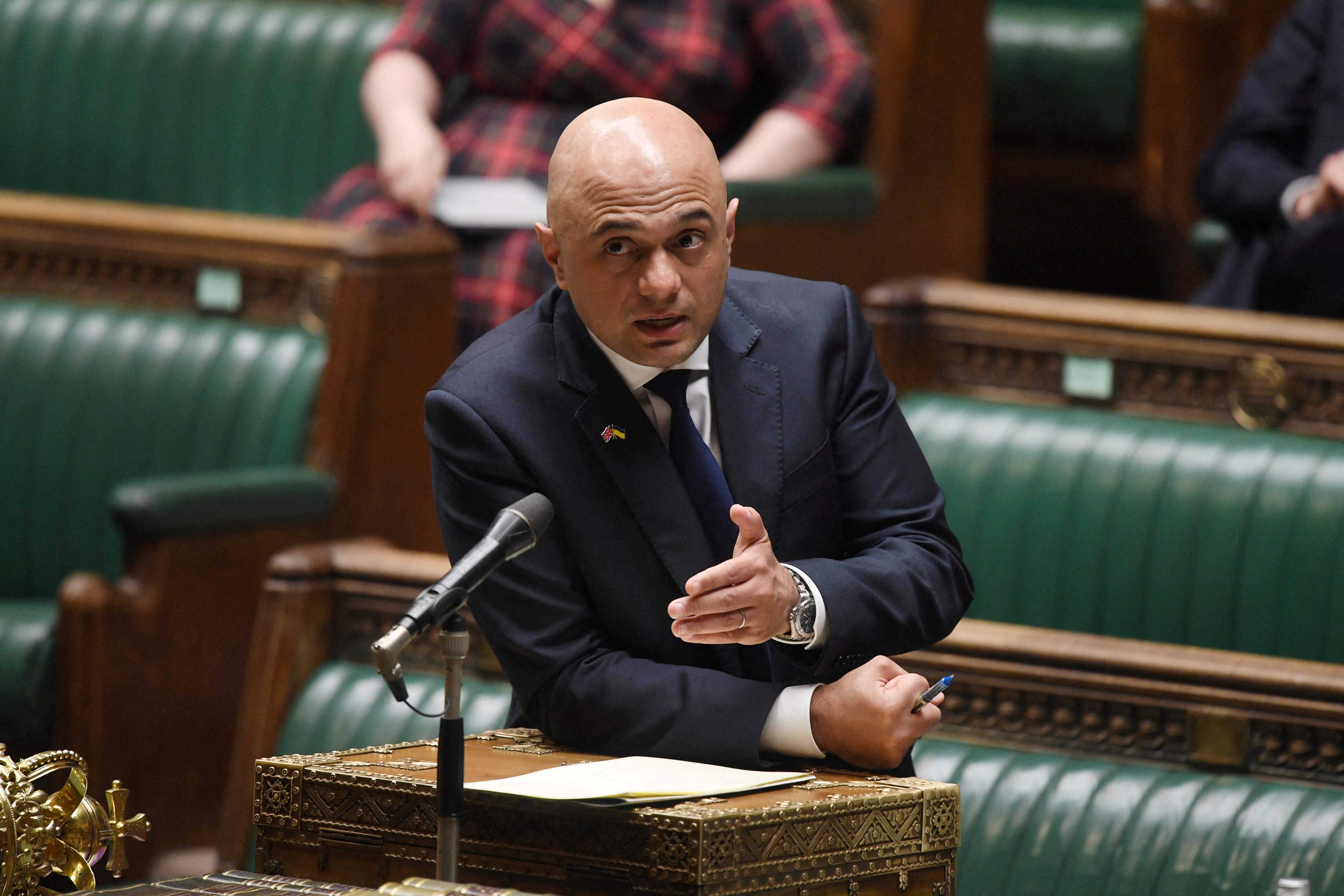Sajid Javid’s claims of openness about his finances ring rather hollow
The health secretary failed to disclose that he used an offshore trust when he was an MP and a Treasury aide, writes John Rentoul


It seems surprising that someone could be a plausible candidate to be prime minister in this day and age without the people knowing important facts about their financial interests. This was true of Rishi Sunak, who seems to have thought it was fine for him to be chancellor without people knowing that his spouse was a non-dom, and who in January came close to being a candidate in a Conservative leadership election.
And it is true of Sajid Javid, the health secretary, who did actually stand for the Tory leadership in 2019 without declaring his own past non-dom status. That was information that he volunteered only after The Independent revealed Sunak’s wife’s non-dom status earlier this month.
In both cases, the ministers tried to claim that the information did not need to be made public. Sunak said he had told the permanent secretaries of his departments, and Lord Geidt, the independent adviser on ministerial interests, gave him a clean bill of ethical health yesterday.
But that ruling was contradicted by the decision by Akshata Murty, Sunak’s wife, to renounce the tax benefit of her non-dom status. She obviously thought that avoiding UK tax on her offshore income looked wrong – that there might be, in the words of the ministerial code, a “perceived conflict of interest” – and that it would be in her family’s interest to end the arrangement.
Similarly, Javid claimed that his non-dom status until 2009, before he entered parliament the following year, was not relevant, and he was only declaring it now, he implied, because there had been such a fuss about Sunak’s wife. Any credit he might have gained for his openness quickly dissipated, however, when he refused to answer further questions.
In particular, the glaring omission from his statement was that he didn’t say in which other country or countries he claimed to have been domiciled. He had worked in the US and in Singapore, and his father was born in Pakistan, but he wouldn’t say which country he regarded as his long-term home. Non-dom status is available only to people who claim that they see somewhere other than the UK as their permanent home.
For the strict purposes of the ministerial code, Javid is right to say that this is all ancient, pre-parliamentary history. But for the wider purposes of accountability in a democracy, the voters are entitled to know if someone who aspires to be prime minister saw his future as lying outside the UK only a few years earlier. (That is also why there is a legitimate interest in Sunak’s green card, a US document that requires a declaration that the US is the holder’s permanent home, which he held until last year.)
Now Anna Isaac, our economics editor, reports that Javid used an offshore trust when he was an MP – indeed, when he was parliamentary private secretary (PPS) to George Osborne, the chancellor, in 2011. A PPS is not a minister, but it is often the first step to ministerial office and PPSs are also bound by the ministerial code: “They must ensure that no conflict arises, or appears to arise, between their role as a parliamentary private secretary, and their private interests.”
To keep up to speed with all the latest opinions and comment, sign up to our free weekly Voices Dispatches newsletter by clicking here
In any case, MPs are required to record their interests in the Register of Members’ Interests: Javid’s entry recorded a shareholding in Deutsche Bank, his former employer, but did not mention a trust or where it was registered – we reported that it is understood to have been in a tax haven. This would seem to take a minimalist approach to the requirement of disclosure.
It is not only the fact of his shareholding in Deutsche Bank that is relevant. As an aide to Treasury ministers, the way in which shares are held could also give rise, or appear to give rise, to a conflict of interest. The Treasury, as the department responsible for HM Revenue and Customs, is engaged in a constant battle against tax avoidance, including the use of trusts, tax havens and trusts based in tax havens.
These are matters that any MP ought to disclose, but particularly so if they are senior cabinet ministers with leadership ambitions. It is surprising that Javid thought he could be a candidate to become prime minister in 2019 – he came fourth in the MPs’ ballot behind Boris Johnson, Michael Gove and Jeremy Hunt – without disclosing any of this information. (Instead it was Gove’s past use of cocaine that was the revelation of that campaign.) Just as it is surprising that Sunak failed to see that his wife’s tax status was a problem for him.
Let that be a lesson for them in future – and for anyone else who harbours the ambition of replacing the current incumbent of No 10.






Join our commenting forum
Join thought-provoking conversations, follow other Independent readers and see their replies
Comments